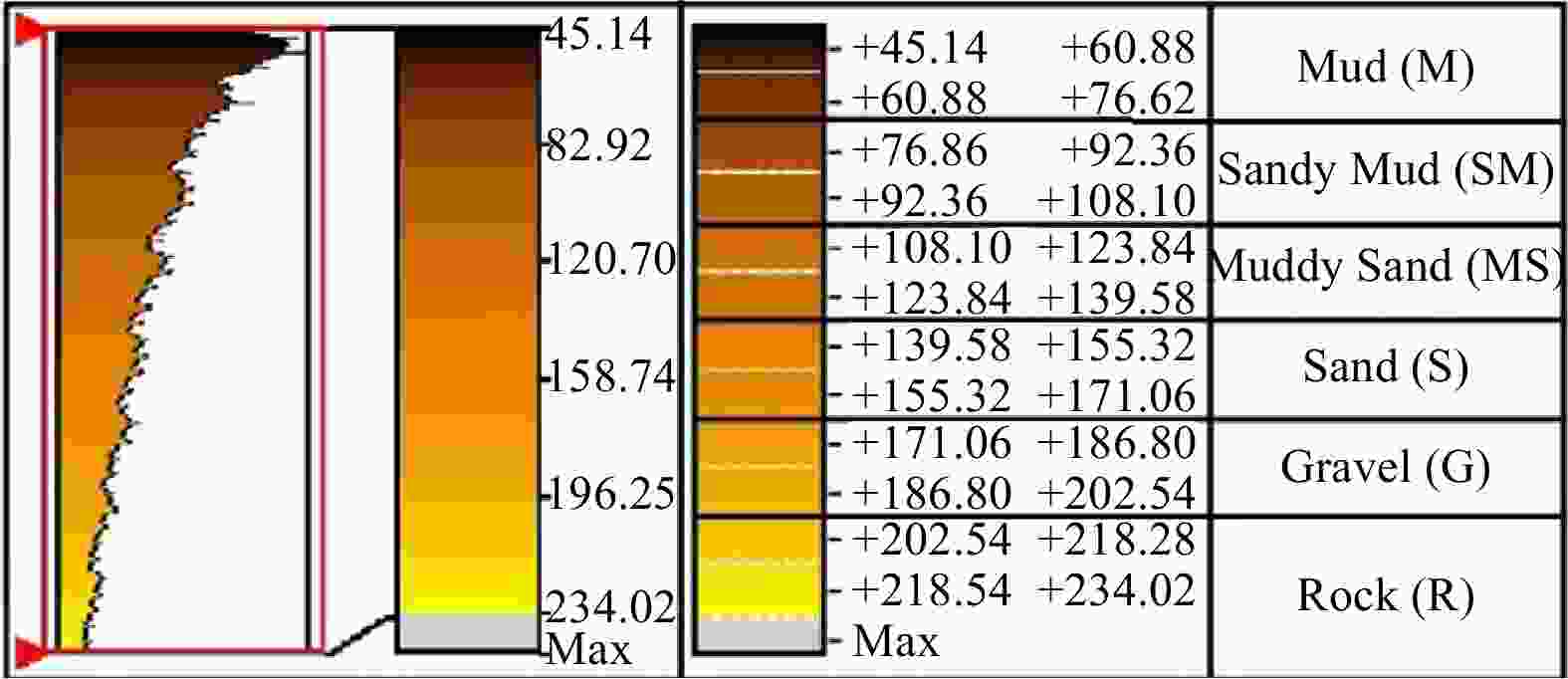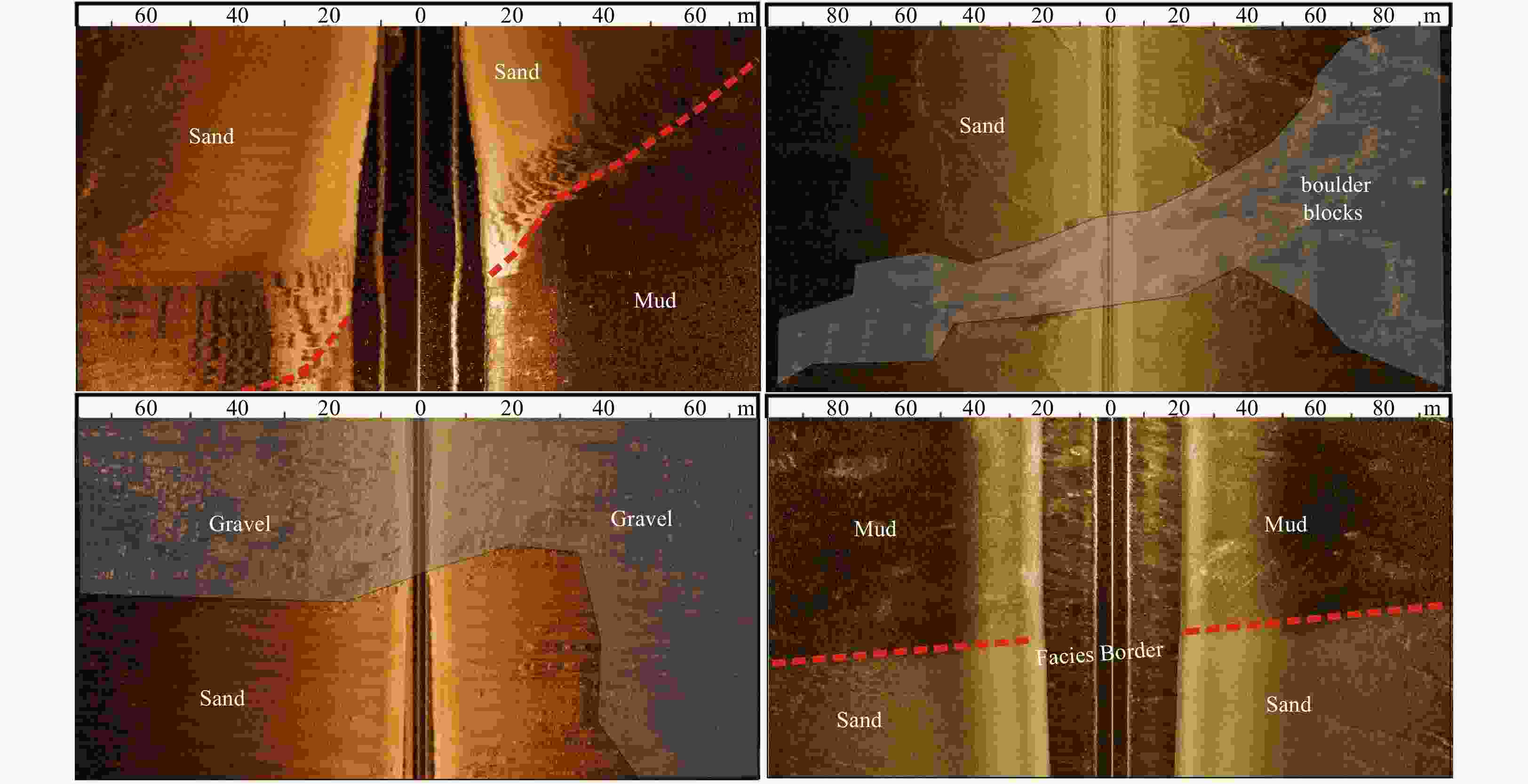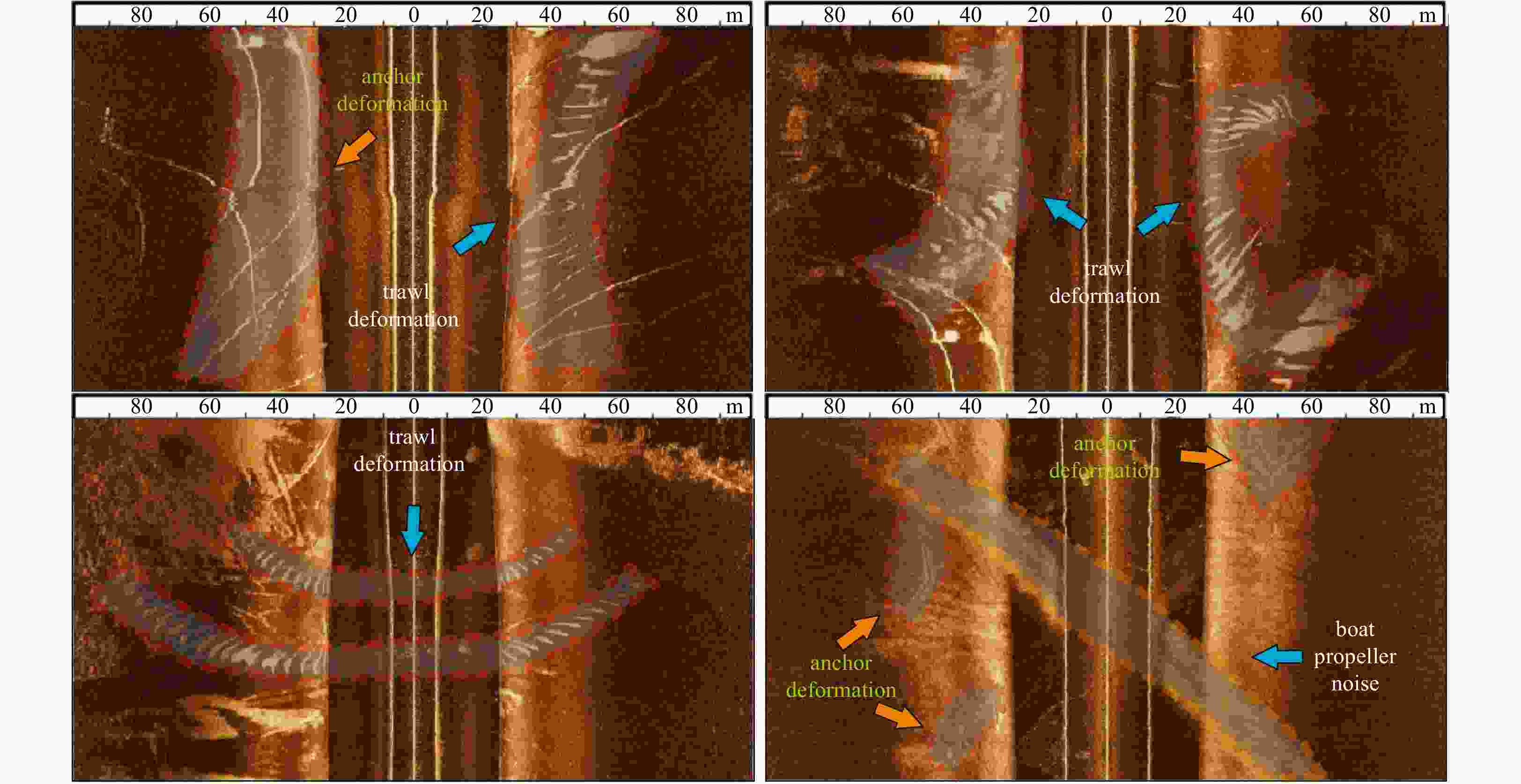Acoustical imaging of the nearshore seafloor depositions and deformations, a key study for Western Istanbul, Türkiye
-
Abstract: To protect the sustainability of the benefits from seas and near coastal areas, which have under the effect of the very complex hydrodynamic conditions and intensive human activities, without disrupting the balance of nature, it is necessary to image the status of the seafloor features. Therefore, this study presents the deformations, depositional conditions, underwater constructions, and the other non-natural impacts on the seafloor of the nearshore area at western Istanbul (between Küçükçekmece and Büyükçekmece lagoons) where it intensely used by the citizens. The results of the study may provide some guidance for understanding the impacts and risk factors of uses that are or will be conducted in coastal and/or near-coastal areas. Construction planning for civil coastal structures and areas should be done in great harmony with nature, minimizing negative environmental impacts. Although sediment distribution in the area is generally quite complex, the current state of the region, wave action, hydrodynamic conditions, the amount of material transported from the land, and bathymetry are important influencing factors. The seafloor has been damaged primarily by anchor deformation and associated bottom scanning, as well as disturbing trawl tracks. The seafloor was observed as partially shallowing near the constructions (such as natural gas pipelines, fishermen’s shelter, and port piles) of coastal areas and associated with sand deposits. Therefore, scanning the seafloor using side-scan sonar may provide valuable frequency data to prevent future disruptions.
-
Key words:
- port activities /
- sediment classifications /
- side scan sonar /
- sub bottom profiler /
- coastal protection
-
Figure 1. Location (a), bathymetry (b), regional geology maps (c) of the study area (modified from Alp et al. (2018)). NAF: north Anatolian Fault, EAF: east Anatolian, TEF: Tharace Eskişehir Fault, BF: Büyükçekmece Fault, OAF: Offshore Avcılar Fault.
Table 1. Acoustic returns and the outcrop features of the seafloor formations
Map unit Acoustic reflection
intensityOutcrops features Mud (M) weak smooth flat Sandy Mud (SM) weak smooth flat Muddy Sand (MS) medium smooth flat Sand(S) medium smooth flat Gravel (G) strong low relieve often covered with
ripples or bouldersRock (R) strong high relief, fractures common -
Aksu A E, Hiscott R N, Yaltırak C. 2016. Early Holocene age and provenance of a mid-shelf delta lobe south of the Strait of Bosphorus, Turkey, and its link to vigorous Black Sea outflow. Marine Geology, 380: 113–137, doi: 10.1016/j.margeo.2016.07.003 Algan A O. 1987. Küçükçekmece lagününde dip sedimentlerinin dağılımı. İ. Ü. Coğrafya ve Deniz Bilimleri Enstitüsü Bülteni, 2: 145–155 Alp H, Vardar D, Alpar B, et al. 2018. Seismic evidence for change of the tectonic regime in Messinian, northern Marmara Sea, Turkey. Journal of Asian Earth Sciences, 151: 40–53, doi: 10.1016/j.jseaes.2017.10.028 Alpar Ş B, Algan A O, Yükse Y, et al. 2014. Avcilar-yenikapi (Istanbul) şelf alanindaki güncel taban yapilarinin oluşum ve dinamiklerinin yüksek çözünürlüklü sismik yöntem ile belirlenmesi. TUBİTAK Altinok Y, Alpar B, Cagatay M N, et al. 2009. Sedimentological and geochemical properties of a tsunami deposit in a lagoon north of Sea of Marmara, Turkey. In: Proceedings of the EGU General Assembly 2009. Vienna, Austria: EGU Auer P. 1997. Reviews. Economic and Industrial Democracy, 18(1), 152–153. https://doi.org/10.1177/0143831x97181011 Arthur WB. 1996. Increasing returns and the new world of business. Harv Bus Rev. 74(4): 100-9. Aydıngül Ş. 2013. Küçükçekmece Gölü Havzasi (Bathonea) Kazıları. İstanbul Araştırma Yıllığı 2 Barnhardt W A, Kelley J T, Dickson S M, et al. 1998. Mapping the gulf of Maine with side-scan sonar: a new bottom-type classification for complex seafloors. Journal of Coastal Research, 14(2): 646–659 Borgeld J C, Hughes C, J E , G J A, et al. 1999. Acoustic backscatter of the 1995 flood deposit on the Eel shelf. Marine Geology, 154(1–4): 197–210. https://doi.org/10.1016/s0025-3227(98)00113-3 Briggs K B, Williams K L, Richardson M D, et al. 2001. Effects of Changing Roughness on Acoustic Scattering: (1) Natural Changes. Bull J M, Quinn R, Dix J K. 1998. Reflection coefficient calculation from marine high resolution seismic reflection (Chirp) data and application to an archaeological case study. Marine Geophysical Researches, 20(1): 1–11, doi: 10.1023/A:1004373106696 Buscombe, D. 2017. Shallow water benthic imaging and substrate characterization using recreational-grade sidescan-sonar. Environmental Modelling & Software, 89: 1–18. https://doi.org/10.1016/j.envsoft.2016.12.003 Chen, L C 1998. Detection of shoreline changes for tideland areas using multi-temporal satellite images. International Journal of Remote Sensing, 19(17): 3383–3397. https://doi.org/10.1080/014311698214055 Chiggiato J, Jarosz E, Book J W, et al. 2012. Dynamics of the circulation in the Sea of Marmara: numerical modeling experiments and observations from the Turkish straits system experiment. Ocean Dynamics, 62(1): 139–159, doi: 10.1007/s10236-011-0485-5 Cicin-Sain B, Knecht R W. 1998. Integrated Coastal and Ocean Management: Concepts and Practices. Washington DC: Island Press Collier J S, Brown C J. 2005. Correlation of sidescan backscatter with grain size distribution of surficial seabed sediments. Marine Geology, 214(4): 431–449, doi: 10.1016/j.margeo.2004.11.011 Derman A S. 2004. Kirintili kayaçlar sedimantolojisi. Ankara: Türkiye Petrolleri Anonim Ortaklığı Genel Müdürlüğü yayını Dumanoğlu G. 2014. Deniz jeofizik sistemlerinde elde edilen verinin kalitesinin arttirilmasi ve kalibrasyonu için deniz ortaminda deneysel çalişmalar. Türkiye: Dokuz Eylül Üniversitesi, Fen Bilimleri Enstitüsü Ergintav S, Demirbağ E, Ediger V, et al. 2011. Structural framework of onshore and offshore Avcılar, İstanbul under the influence of the North Anatolian fault. Geophysical Journal International, 185(1): 93–105, doi: 10.1111/j.1365-246X.2011.04941.x Ferrini V L , Flood R. D 2006. The effects of fine-scale surface roughness and grain size on 300 kHz multibeam backscatter intensity in sandy marine sedimentary environments. Marine Geology, 228(1–4), 153–172. https://doi.org/10.1016/j.margeo.2005.11.010 Fonseca L E , Mayer L A , Orange D , et al. 2002. The high-frequency backscattering angular response of gassy sediments: Model/data comparison from the Eel River Margin, California. University of New Hampshire Scholars Repository (University of New Hampshire at Manchester), 111(6), 2621–2631. https://doi.org/10.1121/1.1471911 Gary A, Klee. 1999. The Coastal Environment: Toward Integrated Coastal and Marine Sanctuary Development. New Jersey: Prentice Hall, 2 Gazioğlu C, Gökaşan E, Algan O, et al. 2002. Morphologic features of the Marmara Sea from multi-beam data. Marine Geology, 190(1−2): 397–420, doi: 10.1016/S0025-3227(02)00356-0 Goff J A, Kraft B J, Mayer L A, et al. 2004. Seabed characterization on the New Jersey middle and outer shelf: correlatability and spatial variability of seafloor sediment properties. Marine Geology, 209(1−4): 147–172, doi: 10.1016/j.margeo.2004.05.030 Goff J A, Olson H C, Duncan C S. 2000. Correlation of side-scan backscatter intensity with grain-size distribution of shelf sediments, New Jersey margin. Geo-Marine Letters, 20(1): 43–49 Grindlay N. 2009. Use of high-resolution sidescan sonar data to quantitatively map and monitor a mid-continental shelf hardbottom 23-mile site, Onslow bay, NC [dissertation]. Chapel Hill: University of North Carolina Wilmington Nasıf A, Dondurur D, Vardar D. 2019. Stratigraphical and morphological aspects of the northern Marmara shelf based on seismic data. Journal of Earth System Science, 128(3): 54, doi: 10.1007/s12040-019-1081-1 Okay A I, Kaşlılar-Özcan A, İmren C, et al. 2000. Active faults and evolving strike-slip basins in the Marmara Sea, northwest Turkey: a multichannel seismic reflection study. Tectonophysics, 321(2): 189–218 Oktay F Y. 1998. Güneybati karadeniz, Istanbul boğazi ve marmara denizi kuzey kesiminin kuvaterner’ deki oluşumu ve evrimi. TUBİTAK Olgun N Y. 2001. İstanbul güney şelfi (Ahırkapı–Büyükçekmece) sığ sismik verilerinin değerlendirilmesi, Yüksek Lisans Tezi, İ. Ü. , Deniz Bilimleri ve İşletmeciliği Enstitüsü, Tez. (390): 52s Öniz H, Kaya H, Aydingün Ş. 2014. A harbour structure at Beylikdüzü, Istanbul. International Journal of Nautical Archaeology, 43(1): 179–184, doi: 10.1111/1095-9270.12048 Özgan S. 2020. Acoustic characterisation of the seabottom in the southern shelf of İstanbul (Avcılar–Büyükçekmece) [dissertation]. Türkiye: Institute of Marine Sciences and Management, Istanbul University Pratomo D G, Cahyadi M N, Akbar K, et al. 2018. Analysis of seafloor sediment distribution using multibeam backscatter data. MATEC Web of Conferences, 177: 01026, doi: 10.1051/matecconf/201817701026 Richardson M D, Briggs K B, Williams K L, et al. 2001. Effects of changing roughness on acoustic scattering: (2) anthropogenic change. In: Leighton T G, Heald G J, Griffiths G: (Eds). Proceedings of the Institute of Acoustics, Vol. 23, Part 2: 343–390 Salar A, Gazioğlu C. 2021. Tsunami hazard assessment and potential risk mitigation requirement for sea of Marmara coastline. International Journal of Environment and Geoinformatics, 8(3): 359–368, doi: 10.30897/ijegeo.908180 Sarı E, Ünlü S, Apak R, et al. 2013. Mercury distribution in the sediments of Ambarlı Port area, Sea of Marmara (Turkey). Chemistry and Ecology, 29(1): 28–43, doi: 10.1080/02757540.2012.696614 Sarı E, Unlu S, Apak R, et al. 2014. Distribution and contamination of heavy metals in the surface sediments of Ambarli Port area (Istanbul, Turkey). Ekoloji, 23(90): 1–9 Stewart W I, Chu D, Malik S, et al. 1994. Quantitative seafloor characterization using a bathymetric sidescan sonar. IEEE Journal of Oceanic Engineering, 19(4), 599–610. https://doi.org/10.1109/48.338396 Urgeles R, Locat J, Schmitt T, Hughes J E. 2002. The July 1996 flood deposit in the Saguenay Fjord, Quebec, Canada: implications for sources of spatial and temporal backscatter variations. Marine Geology, 184(1–2), 41–60. https://doi.org/10.1016/s0025-3227(01)00303-6 Vardar D, Alp H, Alpar B. 2018. Seismic stratigraphy and depositional history of the Büyükçekmece Bay since Latest Pleistocene, Marmara Sea, Turkey. Journal of Earth System Science, 127(1): 13, doi: 10.1007/s12040-017-0906-z Yaltırak C. 2002. Tectonic evolution of the Marmara Sea and its surroundings. Marine Geology, 190(1–2): 493–529, doi: 10.1016/S0025-3227(02)00360-2 -





 下载:
下载:












